What inspired you to start the African centre for a Green Economy?
Even though the African Centre has been around for 10 years, the idea goes back some 6 years prior during a random meeting with my co-founder Dr Sepo Hachigonta, at a student conference in Beijing. We were both pursuing post-graduate studies in global change at the University of Cape Town, but in different departments and hadn’t met until that conference.
We were both dismayed that it took an international organisation to bring us together, as professionals from Africa and moreover in a key sector that lacked the critical skills that we possessed. From that day, we agreed that we would not only collaborate in our studies, but would set up a platform, whose primary goal would be to foster leadership among emerging young Africans, to drive the continent’s development agenda.
We also believed strongly in the potential that a transition to a green economy could provide for Africa. However, we also agreed that if the opportunities provided by the green economy were to be effectively harnessed, requires Africans to be at the forefront of driving the agenda. But more importantly, young people should provide the required leadership. It is for this reason that since our founding, our workforce has exclusively been ambitious African youth.
When you started the African Centre for a Green Economy , did you think you would be here 10 years later?
To be honest, we were very exploratory when we set up the Centre, but what was very clear from the onset is that we were in this for the long haul. This is partly because the nature of the problems we set out to solve such as climate change, food and energy security, require a long term view. So 10 years may appear to be long from a career perspective, but in terms of creating lasting impact, it’s not a long time. So we see ourselves being around for a much longer, but our tactics might change, depending on the needs and resources at our disposal.
How has the journey been so far ?
To say that it’s been extremely challenging is an understatement. Building a non-profit, non-partisan entity from scratch is no child play. Aside from the challenges of institutional building, the discourse on sustainability has been changing extremely fast, so convincing key actors such as governments to take the green agenda seriously in the face of competing issues such as poverty alleviation has been difficult. However, over the last couple of years there has been increasing appreciation, that pursuing a green agenda is not a luxury by governments, but a necessity. So it’s good to watch how attitudes have been shifting, which has made our work a bit ‘easier’.
After 10 years in services, are there any major highlights you can share with us?
I think the mere fact that we are still around after 10 years, in itself is a highlight. Many people did not believe in our vision when we set out, but we have been steadfast in our efforts and over the years have demonstrated the value we bring in advancing the discourse on driving the green economy.
There have been numerous highlights, for example many of the green enterprises that we have incubated over the years are still thriving, creating hundreds of jobs for vulnerable communities on the continents. Many young people who have mentored have gone on to play a leading role in driving the green agenda, including taking up key positions in government, international NGOs etc.
Perhaps our biggest impact is in providing technical support to various stakeholders across the continent, which helped to advance the green economy discourse, and helped to embed their principles with practitioners and policymakers.
What challenges have you faced so far?
Many of the challenges we have faced over the years are reminiscent of those faced by small organisations, such as lack of access to long term core funding, hiring and retaining a skilled workforce. We have overcome these challenges by ensuring that we remain nimble by focusing on our key strengthens, and leveraging our strategic networks to sustain our operations.
Where do you envision the centre in the next 10 years to come?
Our goal over the next 10 years is to position ourselves as one of the best think-tanks in Africa on all aspects of the advancing the green economy. But more importantly, we want to be an active conduit for channelling climate finance to the vulnerable communities where we are working. To this end, we would like to raise a minimum of $100 million to invest in cutting edge innovations, which empower communities and build resilience of vulnerable communities. So our work over the next 10 years is cut-out for us, and the work starts now.
If you could go back in time, what’s one piece of advice you would give yourself 10 years ago?
I don’t think there is anything we could have done differently, but perhaps we should have been more aggressive in cultivating relationships with our strategic partners from the onset, especially with governments, who are the custodians of the public goods.
If you could instantly fly all the AfriCGE employees to any destination for a 20th-anniversary celebration, where would it be?
If we are have resources, we wouldn’t wait for a 20th anniversary to appreciate and celebrate the awesome team we have at AfriCGE. I always say Africa is our play ground, I would like our team to explore every corner of our beautiful continent. However for our 20th anniversary, a retreat in Madagascar would be so befitting. Madagascar is a magical place, and epitome of how well our beauty continent is endowed by nature.

